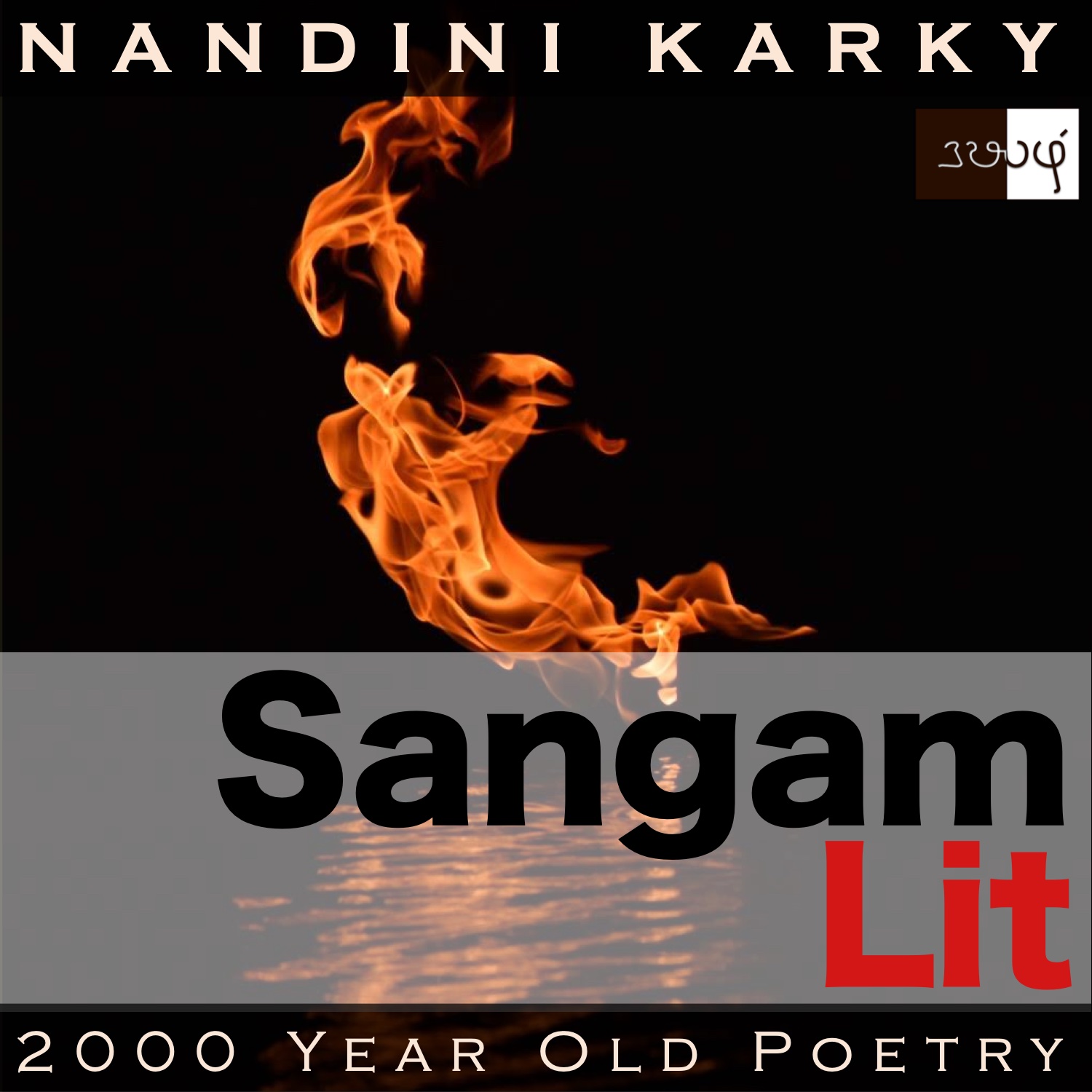Podcast: Play in new window | Download
Subscribe: Apple Podcasts | Spotify | Amazon Music | Android | iHeartRadio | TuneIn | RSS | More

In this episode, we perceive the angst in a lady’s heart, parted from her beloved, as portrayed in Sangam Literary work, Kurunthogai 4, penned by Kaamancher Kulathaar. The verse is situated in the coastal regions of ‘Neythal’ and speaks in the words of the lady to her confidante, expressing the anguish within.
நோம், என் நெஞ்சே; நோம், என் நெஞ்சே;
இமை தீய்ப்பன்ன கண்ணீர் தாங்கி,
அமைதற்கு அமைந்த நம் காதலர்
அமைவு இலர் ஆகுதல், நோம், என் நெஞ்சே.
The repetition of the phrase ‘நோம், என் நெஞ்சே’ meaning ‘my heart aches’ over and over in this verse of few words, makes these feelings rise like a wave to flood the listening heart. ‘இமை தீய்ப்பன்ன கண்ணீர்’ talks about ‘tears that burn the eyelashes’ and fuses the contrasting elements of fire and water to convey the intensity of thought. Contrast also arises in the words ‘அமைதற்கு அமைந்த’ meaning ‘the perfect one’ and ‘அமைவு இலர்’ meaning ‘ill-suited’ and makes us wonder at these diverging directions.
What could have caused the lady so much pain? Although there is no mention of the seas or the seabirds, this poem is said to be situated in the ‘Neythal’ landscape, and that’s because it falls under the theme of ‘a lament for the parted’. The man and lady were most probably in a love relationship when the man parted away on a mission. This led to the lady languishing, missing the man’s presence. Her confidante worries about the lady’s pining and the consequences on her health, and speaks in anger about the man. To her, the lady says, “My heart hurts; My heart hurts; When my love, who is the perfect one for me, no longer wipes these tears that scorch my lashes and therefore, is thought to be one unsuited for me, my heart hurts, indeed!” With these words, the lady expresses the pain in her heart as the man continues to stay away but also adds about something else that pains her even more.
As we raise our heads above the flood of the lady’s sorrow, we hear her lament about how burning tears turn her eyelashes to ashes and how the one she thought to be the perfect one, the one who protected and loved her, was not there to wipe away those tears. And then, she recollects the words used by her friend, who called the man ‘unsuited’ for the lady, and says that’s what makes her heart pain the most! When the lady says these words, she gives expression to the pain within and at the same time, tells the confidante that she cannot bear to have the man thought ill of, and to prevent that, she makes a hidden promise to bear with the man’s separation.
Pondering on how the heart’s sorrow is repeatedly mentioned in this verse, I’m reminded of something most of us would have experienced. In the intensity of a sadness, nothing else seems to hold our attention. That one feeling seems to eclipse everything else and it’s this understanding that has been poured into this verse. Likewise, the wisdom of the age-old Tamil tradition in fully expressing difficult feelings, without holding anything back, glows in this gem of a verse. It makes me think of the movie ‘Inside Out’ movie and its subtle message of not wanting to be happy all the time but giving sorrow its due too. A deep little poem, which seems to tell us, that although at the moment, it may feel like swimming in a fiery fluid, when the sorrow within is poured out, a cool breeze of comfort would swirl around and steady the swaying heart on solid ground!




//As we raise our heads above the flood of the lady’s sorrow// imagining this is funny and different 😍😀